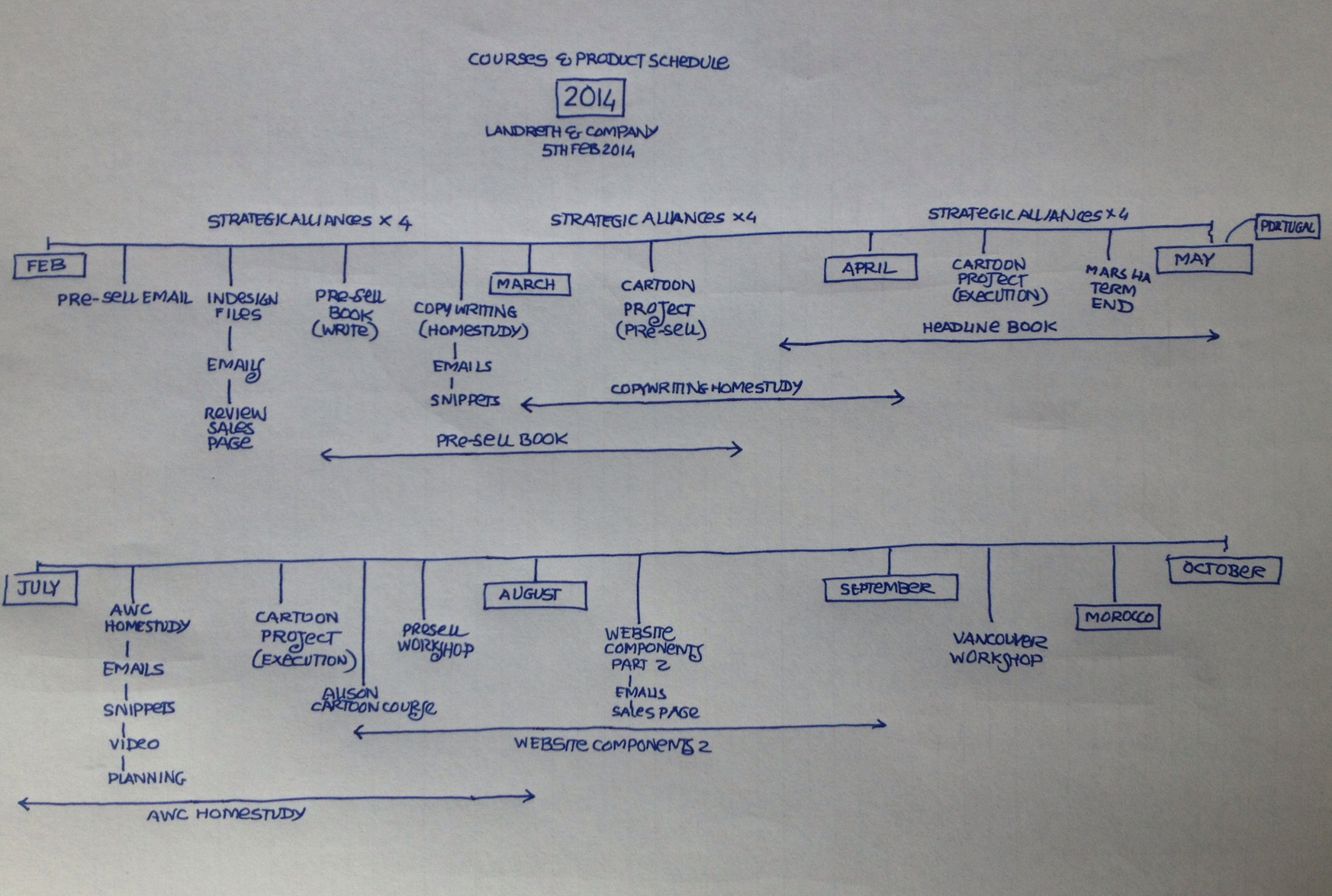Overwhelm is like doing the dishes.
If you don't do the dishes today, you have twice as many tomorrow.
And then on the third day of gorging and not cleaning, let's not talk about it, shall we?
People who don't keep up with stuff feel the most overwhelmed
You know those people, don't you? They're the ones who were around when computers came along. Who needs computers, they said. Then suddenly they were helpless. They couldn't start up, let alone run a computer. They couldn't find things on the Internet, and they're also the ones standing in the queue at the post office to pay their bills (instead of doing it on the Internet).
The point is “overwhelm” is like the weather, it's here to stay
So instead of acting like it doesn't exist, let's instead find simple ways to join in.
I use three systems:
1) Use dead time
2) Do 15 minute segments
3) Write down what's in my head—and create a timeline
Using dead time
You can't ever get ahead, but that doesn't mean you need to fall behind. And dead time exists everywhere and every single day of the year. When I go to pick up my niece from school, I have dead time on the way to school and while waiting for her. I take a book and listen to audio on the way to the school.
Even if I don't remember it all (and I barely remember 10%) I listen to it like radio. I learn a bit, everyday (yes, those 10% bits really add up). There's time at the post office, dentist, even watering the lawn.
Of course, I don't make use of 100% dead time. Sometimes it's fine to just water the lawns, but most of the time I'm prepared for dead time. Most people aren't. And that leads to overwhelm because in a day, you have at least 30-60 minutes of pure dead time. In a week, that's about 5 hours; a month 25 hours; a year 250 hours. But that's just dead time. There's also learning time.
And I do my learning in 15 minute segments
At this point in time my day looks like this:
– Learning Portuguese
– Advanced functions of my Nikon D7000
– Studying software such as Photoshop, Lightroom and InDesign
– Writing a book, audio book, bonus for the book
– Writing an article every day for 100 days (back to back).
– Mentoring my niece for 5 hours (six days a week)
– Managing the membership forum at 5000bc.com
– Re-writing pages for Psychotactics
– Drawing and painting a daily diary cartoon
– Cooking new types of meals
– Doing my photo book on Africa
– Compiling a video about my nieces
– Conducting three live courses (copywriting, cartooning, watercolors)
– Strategic alliances
– Email, yes that onslaught of email.
– And ten million other things, of course!
In short, there's not a lot of time. So I take 15 minute segments
I will plan for at least 2 x 15 minutes. Maybe one in the morning and one in the evening. And in those 15 minutes I may learn something about a program that will save me a ton of time. Or I may read something that forms the basis of my article and I don't have to keep wondering what to write.
I believe in the concept that input leads to output. Without input there can be little or no output and if I can't find 15 minutes, twice a day, well, that's a poor day for me. And wonderful as these two systems are, nothing works better for me than just writing it down.
Writing things down and creating a time line
The moment I write things down, they aren't in my head any more. To me that's a lot of free space considering how much I want to do. So I write it down. But writing it down is the first stage. Then I do a simple time line. And that time line ensures one thing: It ensures that I actually think through how much time I have to do just about anything.
If I just write goals willy-nilly, I don't get very far. If I put a timeline, I can see where I'm going to get stuck. No timeline is ever going to be perfect, but it's a great start and most of the time it does pretty darned well.
My timeline for the year. Notice I put in the breaks as well.
And here's my day today…
In 30 minutes I'm going to create a timeline for today and the month to come (I've already done one for the year). I'm not going to be at my computer but at a cafe. It's more productive. I also have a dentist appointment. He's almost always 10 minutes late. I'm prepared and not going to read some lousy magazines.
And yes, because I'm prepared, the drive to and from the dentist, and at the dentist will make up for at least 15 minutes, maybe 30 minutes or more of learning.
I could put it off of course, but it's like the dishes
Do the dishes. It's your best chance against the rising tide of overwhelm.
How much time does it take to do research?
Most of us do our research once we sit down to write an article, create a webinar or podcast. A zillion hours later, the content is still not ready and the hours have flown away needlessly. And that’s because we go about doing research the “wrong way”.
All research needs to be done in advance and stored away. But how do you find it once it’s stored away? Find out—How To Save Two Zillion Hours in Research (Using Cool Techniques with Evernote)



Leave a Reply